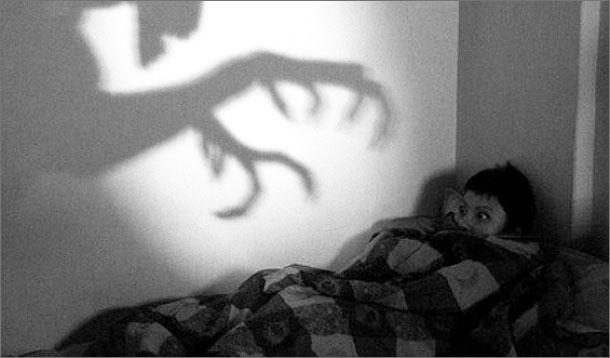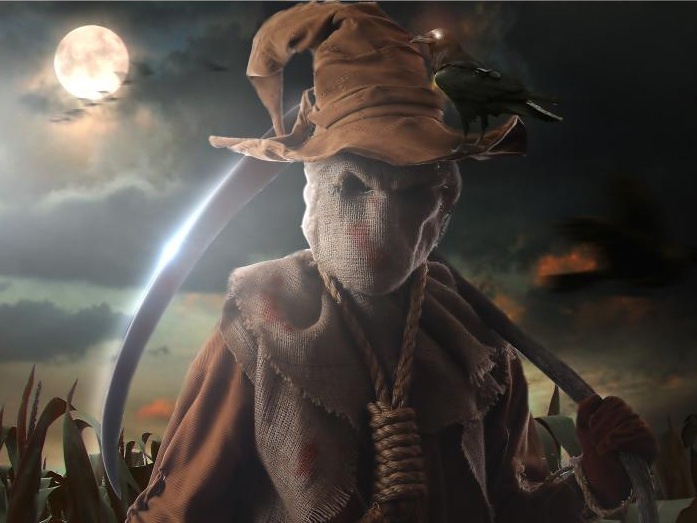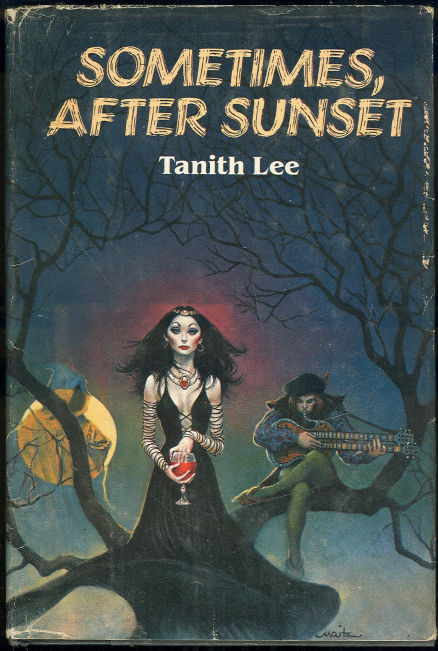Instead of going through and reviewing each of the books individually, I’m going to do a simplified, overall review of the series as a whole. You and I will both be glad I did.
I started reading “The Gunslinger” Book 1 of 7.5 in Stephen King’s Dark Tower series back in August 2015. As the pages went by, so did the months, until eventually I wrapped it all up last month by jumping slightly backwards to read what King places as Book 4.5, “The Wind Through The Keyhole”.
There’s so much here! King has truly created a world eerily familiar while at the same time completely different than our own. A future date is never specified for the time that the Gunslinger, Roland Deschaine, comes from, but it’s at least a few hundred years from now, if not a thousand or more. The world has changed, it’s ‘moved on’ as is worded in the books. Well-populated cities are few and far between. Machines and the electricity to run them are even more rare. We, you and me, or those closer to our timeline, are known only as The Old Ones. We are the faceless, nameless creators who pretty much screwed everything up at some point in the distant past.
Enter Roland, the Last Gunslinger, whose only mission in a long and troubled life is to reach the Dark Tower. He will do anything, go anywhere, kill anyone, in order to reach that destination. Roland is a highly trained killing machine and he does it all 19th century American Southwest cowboy-style, with a pair of ivory-handled revolvers that once belonged to his father. But, he can’t do it alone. He needs his posse, his ka-tet, to share in the adventure. And this is where the time travel comes in.
Through a series of free-standing, hovering doors scattered here and there along Roland’s route, he starts pulling people through into his own time. The first is heroin addict, Eddie Dean from 1987. Not to be confused with the Texas-born country and western singer of the same name. Next, comes Odetta\Detta Holmes aka Susannah Dean who is ripped from the year 1964. Again, try not to get her confused with the Civil Rights activist, singer and songwriter from the 1960s. Last but not least we have eleven-year-old John “Jake” Chambers, who is rescued from an abandoned and seemingly possessed house in 1977 and brought into Roland’s ‘when’. The final member of the ka-tet is the billy-bumbler, Oy. A sort of long-necked dog that talks who very quickly wins over our hearts as Jake’s tried and true friend and loyal companion.
Obviously, if I spent somewhere around eight months reading this series, I must have enjoyed it. Very true. It contains a little bit of every genre out there; sci-fi, western, horror, fantasy, adventure, and yes, there’s even some romance going on. I really think it’s a must-read for any Stephen King fan. He does some pretty awesome writing here and yet…
For as much as I was impressed and for as much as I grew to love Roland and all the members of his ka-tet and their bond and adventures, I also found myself feeling disappointed with it. Some scenes felt like fillers and cop-outs. It was like King felt he needed to make this thing as thick and long-winded as possible so let’s add in this and that and the other thing and tie it all together in some obscure way that sort of makes sense. I questioned these scenes and their purpose in the grand scheme of it all; for example, the entire “Wizard of Oz” portion. Why? I honestly can’t recall for the life of me what this was all about. Why did we go there? Why did the dog need ruby slippers? And if King was going for some sort of how many other book references can he smash into this series theme, the shoes should have been silver as they are in the L. Frank Baum books. It all felt too contrived to me.
The other element I didn’t care for at all was the way King included himself in the end of the series, like some omnipotent God. I am King, the Great and Powerful. You are nothing without me. If I die, you die. It seemed so self-glorifying and self-righteous and honestly, on some level, more filler to make this series much longer than it needed to be. Just get to the point already. Let’s get Roland and his ka-tet to the Dark Tower and let’s see what’s in there.
And once we finally do get there, all that time and build-up will be worth what Roland finds at the top, right? Um. Not so much. King should have spent less time blathering on about connecting this series to “The Wizard of Oz”, or “The Stand”, or “Salem’s Lot” and more time on this ending. It turned my whole perspective of the who, what, and why of Roland and his quest upside down.
Am I glad I read it despite what I felt was a horrible and disappointing ending? Yes, very much so. There’s a lot in the series to love and admire and at one point I found myself crying, yep. King wrung the tears out of me. For a writer to be able to get you so in love and involved with his fictional creations, you know he’s done an amazing job of drawing you into their lives and caring. Damn you, King! Damn you, for being so awesome even if you disappointed me a bit at the end.
It’s not your typical King story. It’s not pure horror by any stretch of the imagination. Non-King fans will like this just as much as those who have been with him since the beginning.
I’d love to this is 5 Ravens, but… that ending.
4 out of 5 Ravens.





Recent Comments